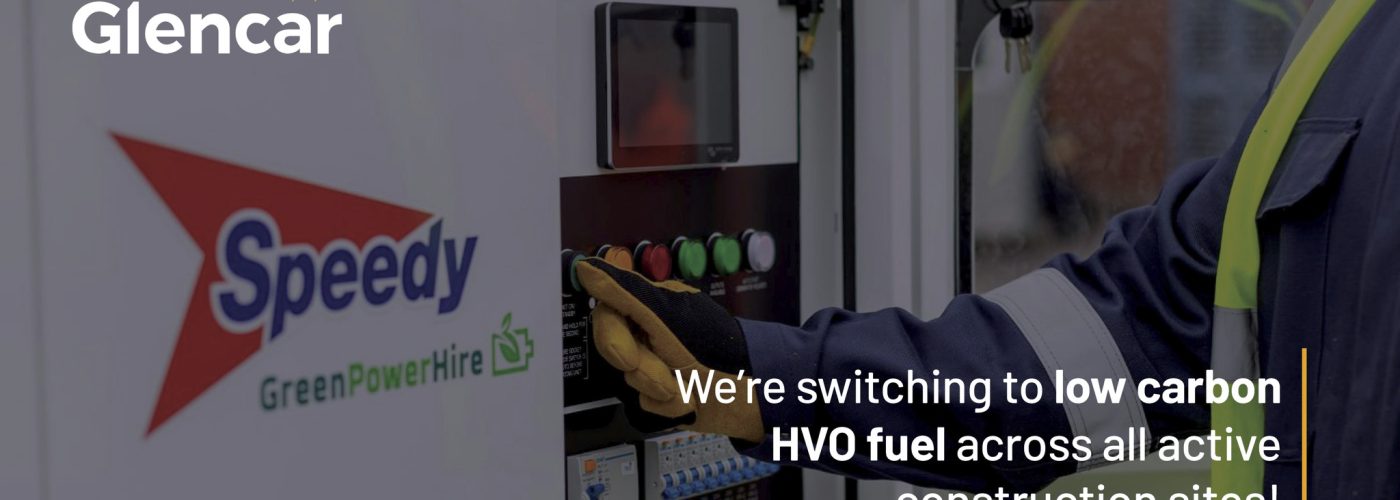Key announcement set to reduce direct CO2 emissions by up to 90% in line with the Glencar target to reduce Scope 1 emissions by the end of 2025.
Glencar, a leading UK based construction company recognised for its past ranking among Europe’s fastest-growing businesses and known for delivering high quality projects across various sectors, most notably in Logistics & Industrial, Life Sciences & Pharma, Data Centres, Commercial, Ports, Film Studios & Leisure and Civils, has today announced its intention to switch to low carbon Hydrotreated Vegetable Oil (HVO) fuel across all active construction sites from the start of the year and going forward.
The major move will see HVO to be used across all site set ups, welfare establishments, and on-site power generation across all of its construction sites. Glencar is one of the first contractors specialising in the Logistics & Industrial sector to mandate the switch to HVO across all sites.
HVO is a low carbon biofuel typically made by reacting waste vegetable oils and animal fats with hydrogen to create a fuel suitable for use in diesel engines. The switch to HVO will deliver up to 90% reduction in direct CO2 emissions and 80% in other harmful emissions such as particulate matter. The amount of diesel that Glencar uses annually emits over 720 tonnes of CO2 which accounts for the majority of our Scope 1 carbon emissions which the use of HVO is set to reduce.
Speaking about the move Glencar Director of ESG James Scott said: “Our transition to HVO is a major strategic step change that will make an immediate difference and impact on our carbon in construction performance. We estimate a reduction in over 90% in our Scope 1 emissions when every construction site is using HVO.
We have set ourselves ambitious targets to achieve Net Zero for Scope 1 & 2 emissions by 2025 and 2045 for Scope 3 emissions and this is another important milestone on the journey.
We will continue to monitor new technologies and innovation to ensure we are at the forefront of clean and efficient sustainable solutions.
The switch to HVO will also give us further confidence in our emissions data that will enable us to track our reductions and performance against our ESG goals, with the knowledge that HVO itself is a sourced product that is certified through collection of feedstock, manufacturing and delivery into the UK terminal using the ISCC scheme, and thereafter using the UK’s RFAS scheme. This ensures that all feedstocks are classed as 100% renewable under the Renewable Energy Directive 2.
Whilst we recognise the carbon reduction potential of HVO, we are also aware of the environmental impacts of HVO production and will closely monitor the sustainability of our supply chain.
Building, Design & Construction Magazine | The Choice of Industry Professionals





